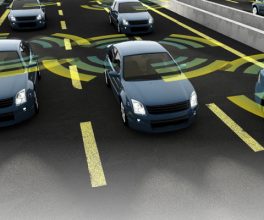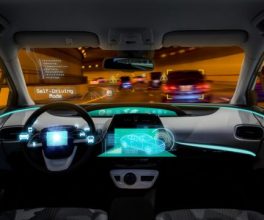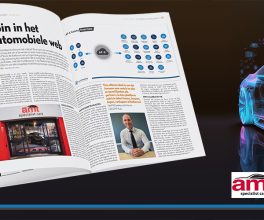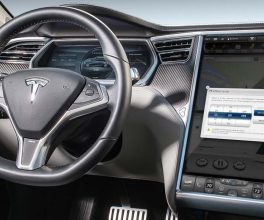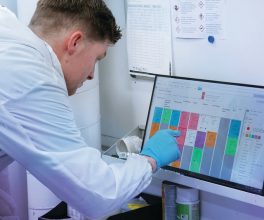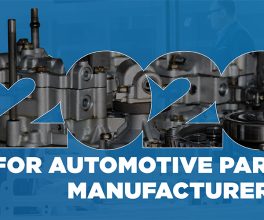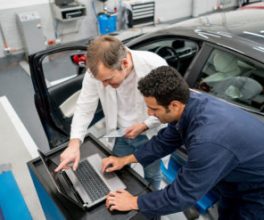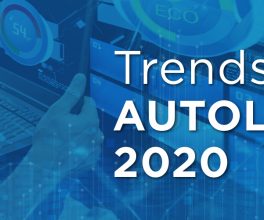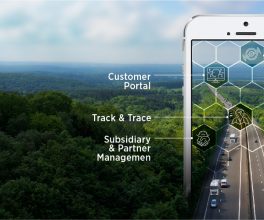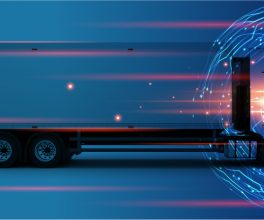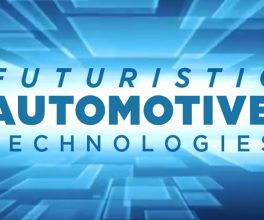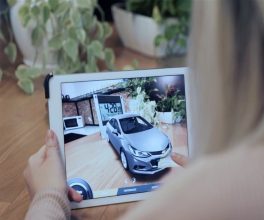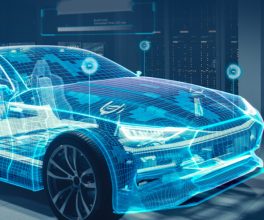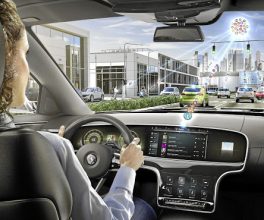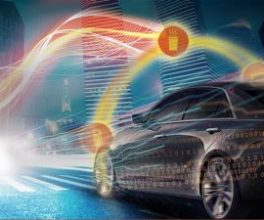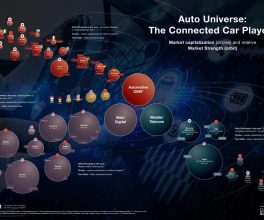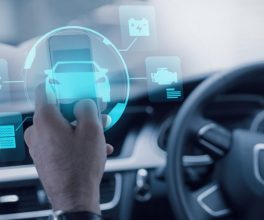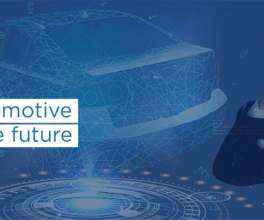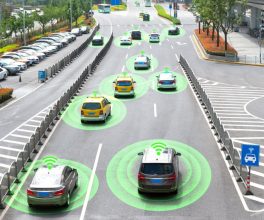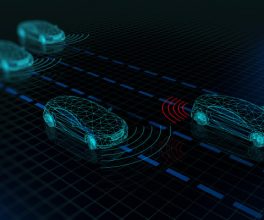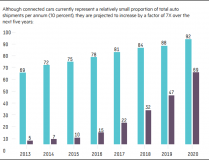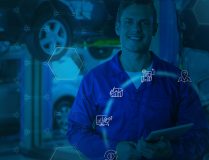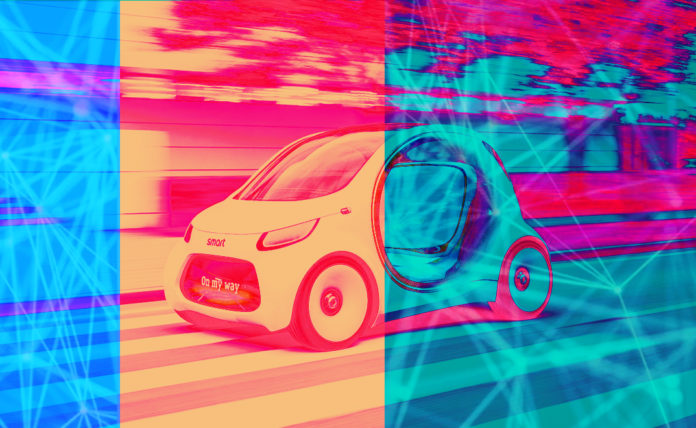CX is at the forefront for brand trust and while the market continues to push new boundaries, trust will be critical.
In today’s era of digital transformation, the automotive industry is reinventing the way we interact with cars. Companies like Uber and Tesla have raised awareness of both the benefits and dangers associated when you take the human out of car technology.
Whether it’s the manufacturing of an electric car or the safety of a self-driving one, one thing has remained consistent – we still need humans!
As we enter into the fourth industrial revolution, it’s important we reflect on the impact of technology and evaluate the future of the automotive industry. As smart car technology evolves, so will the way human assistance is interwoven within its customer experience.
Amazon’s new car delivery service demonstrates how automotive businesses are thinking more broadly about human engagement in conjunction with advancing technology. Research by Walker predicted that by 2020 customer experience will overtake price and product as the main differentiator.
From self-driving cars to trunk deliveries, new technologies and innovations are becoming the driving force behind reinventing automotive brands. As the automotive industry continues to integrate new technology enhancements – pushing the boundaries of their brand – there’s ample opportunity to get customer experience (CX) right to attract and keep long term customers.
Advancing Automotive Technology’s Impact on Today’s Consumer
Just as vehicles are becoming connected and autonomous, consumers are interested in bringing the digital experience into their driving experiences. For automotive brands, this is an opportunity to deliver a better overall CX as a key competing differentiator.
Tech companies are becoming strategic partners with—or even rivals of— established automotive pioneers in the industry. Earlier this year, Volkswagen announced it will be partnering with self driving startup Aurora to assist with its self-driving efforts. The car manufacturer aims to launch self-driving taxi fleets across a variety of cities in 2021 with plans to roll out testing vehicles later this year.
However, recent incidents have many concerned with these efforts as there have been cases demonstrating the importance for human intervention. According to a study conducted by Deloitte, in 2017, 74 percent of survey respondents felt autonomous vehicles were not safe.
Safety, brand trust, and cost are all major factors determining consumer acceptance of these technology advancements, especially with self-driving vehicles. For example, Deloitte found that 54 percent of US consumers in their 2017 study said they would be more likely to ride in an autonomous vehicle if it was offered by a brand they trusted; for 2018 that number increased to 63 percent.
Brands looking to compete with the influx of customization demand will look to leverage CX strategies utilizing data from IoT sensors. The connected services provided through both vehicle and mobile devices complement and enhance the physical experience of the car itself. Some could argue that connected services will become as important as the vehicle, making it a key factor for competitive automotive differentiation.
Today, your mobile phone can not only sync with your car to offer you a personalized playlist, but also offer insight into your vehicle control systems. Connected devices offer you access to a broader brand community, which encourages customers to take part in a larger ecosystem.
Luxury brand Cadillac uses connected devices to drive its company program, Cadillac Collective, an insight community that allows the company to engage with car owners and enthusiasts on an ongoing basis. The purpose is to deliver insight that informs customer-centric decision-making based on the data collected from connected devices. It helps establish brand loyalty and builds on a broader human community.
Human engagement can also enhance the experience of troubleshooting key business challenges. With the aid of IoT sensor data, live agent teams can offer roadside support with minimal delay due to real-time analytics updates. The data is shared with the support agent, giving them insight into the customer’s vehicle concerns as it’s happening. Agents can offer insightful support with shorter turnaround times, offering the best customer experience in a difficult situation.
Automotive Innovation’s Impact on the Employee Experience
Overall acceptance of autonomous technology may not be in our immediate future, however, artificial intelligence and machine learning technology – the tools in which it is built on – are being widely adopted in the automotive manufacturing process. AI is transforming most aspects of the manufacturing process, from research and design to project management and business support functions. Nonetheless, a balance must be maintained between managing advanced technology and enlisting the assistance from skilled employees.
While the automotive industry is making strides towards AI and connected device adoption, the industry’s reliance on humans for the optimal customer experience is essential. Luxury automotive brand Aston Martin uses automation technology in its manufacturing headquarters in England. In an effort to take away some of the more taxing elements of manual labor, the company uses “assisters” for a robot like application of the glue in its assembly process while using its human workforce as its final inspection check.
Aston Martin has embraced AI, but only for some of the more menial and repetitive tasks. The company hopes that by rolling out AI in this capacity it will save its employees from repetitive strain injuries. Other auto brands are looking to AI with aid from IoT devices as a way of enhancing quality control. However, there have been recent reports where cars have been recalled due to ill-suited materials and poor automation processing.
This CX concept can also be applied to the manufacturing process. As history has demonstrated, the automotive industry can be volatile and the manufacturing process is the one constant across any brand.
Therefore, it is extremely important that automakers make their manufacturing processes as efficient as possible. Today, companies such as Aston Martin, Tesla, and Volkswagen are all integrating AI and machine learning principles to help streamline the design and creation process. Where these tools stop, humans pick up, offering a layer of trust unparalleled by a machine.
Companies today use humans to help train their autonomous software, using virtualization practices and other educational tools to support the training processes the automotive industry can foster more productive employees through robot-human collaboration.
Overall, acceptance of autonomous technology has grown rapidly in just a short time. However, driverless cars are still in an experimental stage, and the industry is at the front-end of a long capital investment cycle required to bring autonomous vehicle technology to the mainstream market. To complicate that cycle, automakers recognize an immediate need to invest in areas including electrified powertrains, advanced lightweight materials, connectivity and mobility services.
While the returns will be farther out, it’s important that automakers continue allocating human resources to autonomous driving technology. Those who settle for a reactive mindset rather than preparing for the long term will be at greater risk. CX is at the forefront for brand trust and while the market continues to push new boundaries, trust will be critical.
Phillip McNamara -VP of Business Development for Voxpro – powered by TELUS International
Courtesy of iot for all

